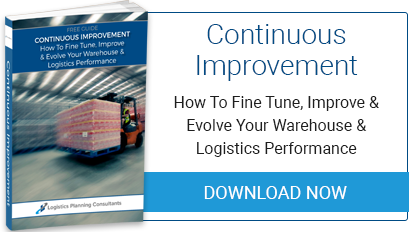
What does ‘smart’ logistics actually mean? While the actual way a business structures its logistics and supply chain varies from company to company, there are three basic principles that underpin an effective, smart logistics strategy. We will look at each in turn in this article: connectivity, data and efficiency.
1) Connectivity
Software in logistics – and the digital transformation that has overtaken the industry as a whole – serves one function: to increase connectivity between different teams and departments within a business, between a business and its customers, and between a business and its supply chain partners. ++
The more connected a logistics strategy is, the better it can perform, whether the supply chain extends across continents or is concentrated in one town. In what ways can improving connectivity have positive effects on a logistics strategy?
- Supply/procurement: Improved connectivity enables closer relationships with suppliers, which in turn enables better risk management, avoids service disruption and aids inventory planning with potential reductions in lead times.
- Planning: Better connections enable businesses to anticipate change and put scenarios in place to manage them, rather than simply reacting to external circumstances. Many logistics software platforms enable supply chain modelling based on a range of virtual scenarios, and allow you to make rapid adjustments to the connected parts as circumstances change. This connected approach to planning reduces the impact of unplanned change and the disruption it brings to businesses and customers.
- Measuring performance: Greater connectivity brings greater access to data, which we will look at shortly. In terms of connectivity, however, data access allows businesses to assess the performance of order processing, procurement, finances and other parts of the business, measuring real-world figures against predictions and objectives.
2) Data
Smart logistics depends on real-time data relating to the performance of employees, policies, software systems and machinery. This enables inefficiencies to be identified and changes made without the guesswork involved in trial and error. How do you increase the amount of data available to you to make smart business decisions? One way of doing this is to make better use of sensors attached to vehicles, stock, plant, employees and assets.
There are very few limits as to what smart sensors can measure, ranging from average length of delivery routes to fuel consumption, to the time taken for employees to ready an item for dispatch. You can use data to locate specific assets in real time – which helps optimise your availability when responding to customer needs – and predict your capability to fulfill contract requirements. This injects greater realism into the way you set customer expectations, and provides a benchmark for change and development.
Real-time data access also lets you know when and where things are going wrong that could affect service, allowing you to plan your resources and address problems early before they escalate throughout the supply chain.
3) Efficiency
In the USA, much is made of ‘lean’ organisation when applied to warehouse and logistics management. This essentially means streamlining your logistics in a way that makes most efficient use of the assets at your disposal, and avoids wasting time and money on assets you don’t actually need. Why operate two forklifts when you can optimise your warehouse layout, shorten journey times and make do with just one?
Efficiency involves making smarter use of your warehouse space to improve access to inventory, improving the way you track orders, and making it easier and more intuitive to get an overview of your systems as a whole. The point of an efficient logistics system is to deliver your customers products in the right quantity, on time, with the right margin and with as few overheads as possible.
Easier said than done – but using cloud-based, or local server-based systems and embedding a culture of continual review and assessment in your business can help you achieve it, even as technology and the demands of your customers develop over time.
Use Our Expertise
Maintaining a profitable and competitive logistics business involves a balance of resilience and adaptability. Having the right systems in place is essential, and having access to the right knowledge when you need it can make a big difference too. Speak with our consultants about how to take your business to the next level by making it more data rich, more efficient and better connected. Call 01285 640038 today to find out more.
Image Source: Pixabay



